- Home
- neetha Napew
Aztec Autumn Page 2
Aztec Autumn Read online
Page 2
"It is also time," said my Uncle Mixtzin, on that thirteenth birthday of mine, "for you to celebrate another sort of graduation. Come with me, Tenamáxtli."
He escorted me through the streets to Aztlan's finest anyanicáti and, from the numerous females resident there, picked out the most attractive—a girl almost as young and almost as beautiful as his own daughter Améyatl—and told her: "This young man is today a man. I would have you teach him all that a man should know about the act of ahuilnéma. Devote the entire night to his education."
The girl smiled and said she would, and she did. I must say that I thoroughly enjoyed her attentions and the night's activities, and I was duly grateful to my generous uncle. But I also must confess that, unknown to him, I already had been foretasting such pleasures for some months before I merited the manly loincloth.
Anyway, during those years and subsequent years, Aztlan never was visited by even a roving patrol of the Caxtiltéca forces, nor were any of the nearer communities with which we Aztéca traded. Of course, all the lands north of New Spain had always been sparsely populated in comparison to the midlands. It would not have surprised me if, to the north of our lands, there were hermit tribes who had not yet even heard that The One World had been invaded, or that there existed such things as white-skinned men.
Aztlan and those other communities naturally felt relief at being left unmolested by the conquerors, but we also found that our safety-in-isolation entailed some disadvantages. Since we and our neighbors did not want to attract the attention of the Caxtiltéca, we sent none of our pochtéca traveling merchants or even swift-messengers venturing across the border of New Spain. This meant that we voluntarily cut ourselves off from all commerce with the communities south of that line. Those had formerly been the best markets in which to sell our homegrown and homemade products—coconut milk and sweets and liquor and soap, pearls, sponges—and from them we had procured items unavailable in our lands—every sort of commodity from cacao beans to cotton, even the obsidian needed for our tools and weapons. So the headmen of various towns roundabout us—Yakóreke, Tépiz, Tecuéxe and others—began sending discreet scouting parties southward. These went in groups of three, one of them always a woman, and they went unarmed and unarmored, wearing simple country clothes, seeming to be simple country people trudging to some innocuous family gathering somewhere. They carried nothing to make any Caxtiltéca border guards suspicious or predaceous; usually nothing but a leather bag of water and another of pinóli for traveling provisions.
The scouts went forth with understandable apprehension, not knowing what dangers they might encounter on the way. But they went with curiosity, too, their mission being to report back to their headmen on what they saw of life in the midlands, in the towns and cities, and especially in the City of Mexíco, now that all was ruled by the white men. On those reports would depend our peoples' decision: whether to approach and ally ourselves with the conquerors, in hope of a resumption of normal trade and social intercourse; or to remain remote and unnoticed and independent, even if poorer for that; or to concentrate on building strong forces and impregnable defenses and an armory of weapons, to fight for our lands when and if the Caxtiltéca did come.
Well, in time, almost all the scouts returned, at intervals, intact and unscathed by any misadventures either going or coming. Only one or two parties had even seen a border sentry and, except for the scouts having been awestruck by their first sight of a white man in the flesh, they had nothing to report about their crossing of the border. Those guards had ignored them as if they were no more than desert lizards seeking a new feeding ground. And throughout New Spain, in the countryside, in villages and towns and cities, including the City of Mexíco, they had not seen—or heard from any of the local inhabitants—any evidence that the new overlords were any more strict or severe than the Mexíca rulers had been.
"My scouts," said Kévari, tlatocapíli of the village of Yakóreke, "say that all the surviving pípiltin of the court of Tenochtítlan—and the heirs of those lords who did not survive—have been allowed to keep their family estates and property and lordly privileges. They have been most leniently treated by the conquerors."
"However, except for those few who are still accounted lords or nobles," said Teciuápil, chief of Tecuéxe, "there are no more pípiltin. Or working-class macehuáltin or even tlacótin slaves. All our people are now accounted equal. And all work at whatever the white men bid them do. So said my scouts."
"Only one of my scouts returned," said Tototl, headman of Tépiz. "He reports that the City of Mexíco is almost complete, except for a few very grand buildings still under construction. Of course there are no more temples to the old gods. But the marketplaces, he said, are thronged and thriving. That is why my other two scouts, a married couple, Netzlin and Citláli, chose to stay there and seek their fortune."
"I am not surprised," growled my Uncle Mixtzin, to whom the other chiefs had come to report. "Such peasant oafs would never before in their lives have seen any city. No wonder they report favorably on the new rulers. They are too ignorant to make comparisons."
"Ayya!" bleated Kévari. "At least we and our people made an effort to investigate, while you and your Aztéca sit lumpishly here in complacency."
"Kévari is right," said Teciuápil. "It was agreed that all of us leaders would convene, discuss what we have learned and then decide our course of action regarding the Caxtiltéca invaders. But all you do, Mixtzin, is scoff."
"Yes," said Tototl. "If you so disdainfully dismiss the honest efforts of our peasant oafs, Mixtzin, then send some of your educated and refined Aztéca. Or some of your tame Mexíca immigrants. We will postpone any decisions until they return."
"No," my uncle said, after a moment of deep thought. "Like those Mexíca who now live among us, I too once saw the city of Tenochtítlan when it stood in its zenith of might and glory. I shall go myself." He turned to me. "Tenamáxtli, make ready, and tell your mother to make ready. You and she will accompany me."
So that was the sequence of events that took the three of us journeying to the City of Mexíco—where I would get my uncle's reluctant permission to remain and reside for a time, and where I would learn many things, including the speaking of your Spanish tongue. However, I never took the time to learn the reading and writing of your language—which is why I am at this moment recounting my reminiscences to you, mi querida muchacha, mi inteligente y bellísima y adorada Verónica, so that you may set the words down for all my children and all our children's children to read someday.
And the culmination of that sequence of events was that my uncle, my mother and myself arrived in the City of Mexíco in the month of Panquétzalíztli, in the year Thirteen-Reed, what you would call Octubre, of the Año de Cristo one thousand five hundred thirty and one, on the very day—anyone but the prankish and capricious gods would have deemed it coincidence—that the old man Juan Damasceno was burned to death.
I can still see him burning.
II
To govern Aztlan during his absence, Mixtzin appointed his daughter Améyatl and her consort Káuri as co-regents—with my great-grandfather Canaútli (who must have been nearly two sheaves of years old by then, but who evidently was going to live forever) to be their sage adviser. Then, without further ado, and without ceremonious leave-takings, Mixtzin and Cuicáni and I departed the city, heading southeastward.
It was the first time I had ever gone very far from the place where I had been born. So, although I was well aware of the serious intent of our venture, still, to me, the horizon was a wide and welcoming grin. It beckoned me to all manner of new sights and experiences. For instance, at Aztlan the dawn had always come late and in full-blown radiance, because it had first to clear the mountains inland of us. Now, when I had crossed those mountains into flatter country, I could really see the dawn breaking—or, rather, unfurling, one colored ribbon after another: violet, blue, pink, pearl, gold. Then the birds began to bubble over in greeting of the day, singing
a music all of green notes. It was autumn, so there came no rains, but the sky was the color of wind, and through it wafted clouds that were always the same but never the same. The blowing, dancing trees were music visible, and the nodding, bowing flowers were prayers that said themselves. When twilight darkened the land, the flowers closed, but the stars opened in the sky. I have always been glad that those star blooms are out of the reach of men, else they would have been snatched and stolen long ago. At last, at nightfall, there arose the soft dove-colored mists, which I believe are the grateful sighs of the earth going tired to bed.
The journey was long—more than two hundred one-long-runs—because it could not be done in a direct, straight line of march. It was also sometimes arduous and frequently wearisome, but never really hazardous, because Mixtzin had traveled that route before. He had done that about fifteen years before, but he still remembered the shortest way across scorching patches of desert, and the easiest way to skirt around the bases of mountains instead of having to climb over them and the shallow places where we could ford rivers without having to wait and hope for someone to come by in an acáli. Often, though, we had to veer from the paths he remembered, to make a prudent circuit around parts of Michihuácan where, the local folk told us, there were still battles going on between the unrelenting Caxtiltéca and the proudly stubborn Purémpecha.
When, somewhere in the Tecpanéca lands, we did eventually begin to encounter an occasional white man and the animals called horses, and the other animals called cows and the other animals called staghounds, we did our best to assume an air of indifference, as if we had been accustomed to seeing them all our lives long. The white men seemed equally indifferent to our passing by, as if we too were only commonplace animals.
All along our way, Uncle Mixtzin kept pointing out to my mother and myself landmarks he recalled from his earlier journey—curiously shaped mountains; ponds of water too bitter to be drinkable, but so hot that they steamed even in the sun; trees and cactuses of sorts that did not grow where we lived, some of those bearing delicious fruits. He also kept up a commentary (though we had heard it all before, and more than once) on the difficulties of that earlier excursion toward Tenochtítlan:
"As you know, my men and I were rolling the giant carved stone disk representing the moon goddess Coyolxaúqui, taking it to present as a gift to the Revered Speaker Motecuzóma. A disk is round, true, and you might suppose it would roll easily along. But a disk is also flat on both faces. So an unexpected dip in the ground, or an unnoticed unevenness, could cause it to tilt sideways. And, though my men were sturdy and attentive to their labors, they could not always prevent the tilted stone from falling completely on its back or sometimes, grievous to relate, the dear goddess would fall flat on her face. And heavy? To raise that thing up on edge again each time, I swear to Míctlan, required us to beg the aid of every other man we could find in the surrounding area..."
And Mixtzin would recollect, as he had done more than once before: "I might never even have got to meet the Uey-Tlatoáni Motecuzóma, because I was apprehended by his palace guards and very nearly imprisoned as a despoiler of the city. As you can imagine, all of us were filthy and fatigued by the time we arrived there, and our raiment was torn and tattered, so no doubt we did resemble savages who had wandered in from some wilderness. Also, Tenochtítlan was the first and only city we traversed that had fine stone-paved streets and causeways. It did not occur to us that our rolling the massive Moon Stone through those streets would so badly crunch and crush the elegant paving. But then the angry guards swooped down upon us..." and Mixtzin laughed at the memory.
As we ourselves got closer and closer to Tenochtítlan, we learned—from the people whose communities we passed through—a few things that prepared us so we would not arrive at our destination seeming like absolute country clods. For one thing, we were told that the white men did not care to be called Caxtiltéca. We had been wrong in supposing the two names—castellanos and españoles—to be interchangeable. Of course, I later came to understand that all castellanos were españoles, but not all españoles were castellanos—that the latter hailed from a particular province of Old Spain called Castile. Anyway, we three made sure, from then on, to refer to the white men as Spaniards and their language as Spanish. We were also advised to be careful about attracting any Spaniard's attention to ourselves:
"Do not simply stroll about the city, gawking," said one country fellow who had recently been there. "Always walk briskly, as if you have a specific objective toward which you are going. And it is wise to be always carrying something when you do. I mean a building brick or block of wood or coil of rope, as if you were on your way to some task already assigned you. Otherwise, if you go about empty-handed, some Spanish overseer of some work project will be sure to give you a job to do. And you had better do it."
So, forewarned, we three went on. And even from our first sight of it, from afar, the City of Mexíco was awe-inspiring, bulking as large as it did, towering from the floor of the bowl-shaped valley in which it stands. Our actual entry, though, was a little disappointing. As we walked over a long, wide, banistered stone causeway that took us from the town of Tepayáca on the mainland to the city's islands my uncle muttered:
"Strange. This causeway used to vault an expanse of water, busily swarming with acáltin of every size. But now look."
We did, seeing nothing below us but an immense stretch of rather smelly wetland, all mud and weeds and frogs and a few herons—very like the swamps around Aztlan before they were drained.
But, beyond the causeway was the city. And I, even though forewarned, was immediately and often that day tempted to do what we had been told not to do—because the hugeness and magnificence of the City of Mexíco were such as to stun me into motionless ogling and admiration. Each time, fortunately, my uncle would prod me onward, because he himself was not much impressed by the sights of the place, he having once seen the sights of the vanished Tenochtítlan. And again he supplied a commentary for me and my mother:
"We are now in the Ixacuálco quarter of the city, the very best residential district, where lived that friend also named Mixtli, who had persuaded me to bring the Moon Stone hither, and I visited in his house while I was here. His house and the others around it were much more various and handsome then. These new ones all look alike. Friend"—and he reached out to catch the hand of a passerby (carrying a load of firewood, with a tumpline about his forehead)—"friend, is this quarter of the city still known as Ixacuálco?"
"Ayya," muttered the man, giving Mixtzin a suspicious look. "How is it that you do not know? This quarter is now called San Sebastián Ixacuálco."
"And what means 'San Sebastián'?" my uncle asked.
The man shrugged his load of wood. "San means 'santo,' a lesser god of the Spanish Christians. Sebastián is the name of one of the santos, but what he is the god of, I have never been told."
So we moved on, and Mixtzin continued his narration:
"Notice now. Here was a broad canal, always busy and crowded with a traffic of immense freight acáltin. I have no idea why it has been filled in and paved over to become a street instead. And there—ayyo, there before you, sister, nephew"—he made an impressively sweeping gesture of both arms—"there, enclosed by the undulating Snake Wall painted in many vivid colors, that was the vast open space—the bright-shining marble square that was The Center of The Heart of The One World. And in it, yonder, was the sumptuous Palace of Motecuzóma. And yonder, the court for the ceremonial tlachtli ball games. And yonder, the Stone of Tizoc, where warriors dueled to the death. And yonder"—he broke off to catch the arm of a passerby (carrying a basket of lime mortar)—"friend, tell me, what is that gigantic and ugly structure still a-building over there?"
"That? You do not know? Why, that will be the Christian priests' central temple. I mean cathedral. The Cathedral Church of San Francisco."
"Another of their santos, eh?" said Mixtzin. "And for what aspect of the world is this lesser god resp
onsible?"
The man said uneasily, "As best I know, stranger, he just happens to be the personal favorite godling of Bishop Zumárraga, the chief of all the Christian priests." Then the man scurried away.
"Yya ayya," Mixtzin mourned. "Nínotlancuícui in Teo Francisco. I pick my teeth at the little god Francisco. If that is his temple, it is a poor substitute for its predecessor. For there, sister, nephew, there stood the most awesome edifice ever erected in all The One World. It was the Great Pyramid, massive but graceful, and so sky-reaching that one had to climb a hundred fifty and six marble stair-treads to attain the top, and there be awed all over again by the brilliantly colored and roofcombed temples of the gods Tlaloc and Huitzilopóchtli. Ayyo, but this city had gods worth celebrating in those days! And—"
He was abruptly interrupted, as all three of us were suddenly propelled forward. We might have been standing on a beach with our backs to the sea, and neglecting to count the waves, and thus getting unexpectedly deluged by the always-mountainous seventh wave. What shoved against us from behind was that crowd of people being herded by the soldiers into the open square we had been eyeing. We were in the forefront of the throng, and we managed to stay close together. So, when the square was packed full and the milling had ceased and all was quiet, we had an unimpeded view of the platform onto which the priests were ascending, and the metal post to which the condemned man was led and bound. We had a rather better view than I might, in retrospect, have wished to have. Because I can still see him burning.
As I have told, the old man Juan Damasceno spoke only briefly before the torch was laid to the wood heaped about him. And then he made no moan or scream or even whimper as the fire ate its way up his body. And none of us witnesses made a sound, either, except for my mother, who uttered a single sob. But there were noises, nevertheless. I can still hear him burning.

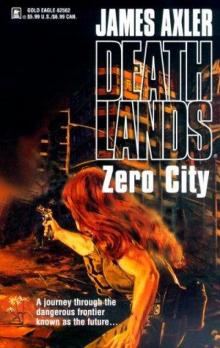 Zero City
Zero City Freedom Omnibus
Freedom Omnibus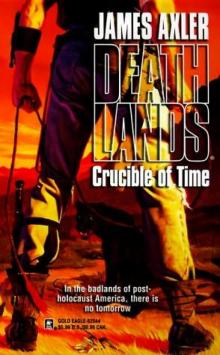 ACrucible of Time
ACrucible of Time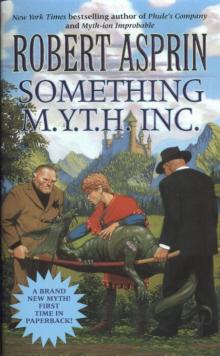 Something MYTH Inc
Something MYTH Inc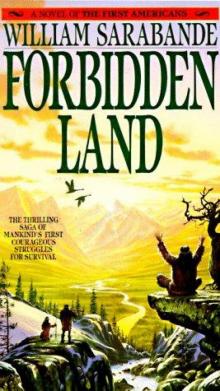 Forbidden Land
Forbidden Land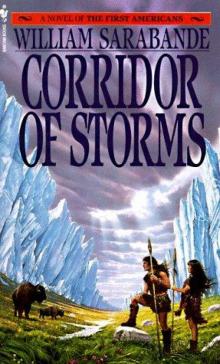 Corridor of Storms
Corridor of Storms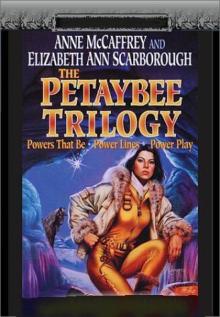 The Peytabee Omnibus
The Peytabee Omnibus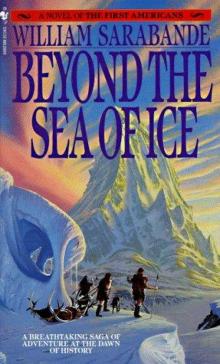 Beyond the Sea of Ice
Beyond the Sea of Ice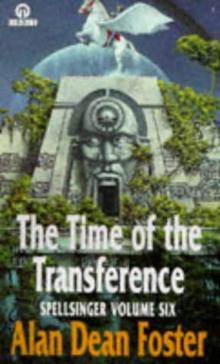 The Time Of The Transferance
The Time Of The Transferance EarthBlood
EarthBlood The Lexal Affair
The Lexal Affair The Web
The Web Slave Ship
Slave Ship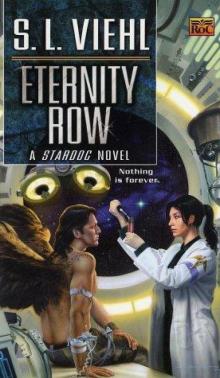 Eternity Row
Eternity Row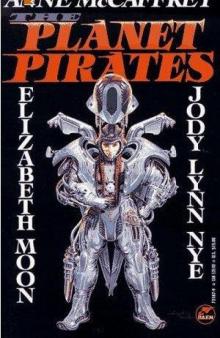 Planet Pirates Omnibus
Planet Pirates Omnibus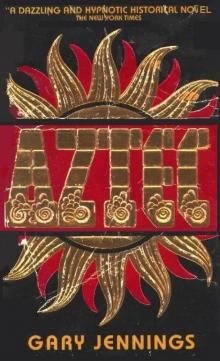 Aztec
Aztec The Awakening
The Awakening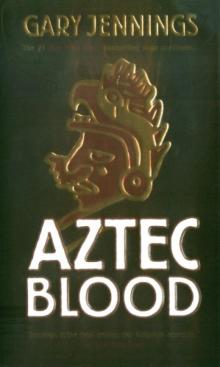 Aztec Blood
Aztec Blood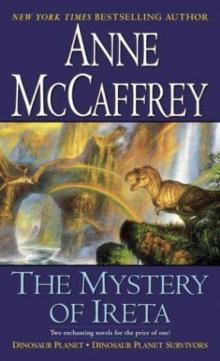 The Mystery of Ireta Omnibus
The Mystery of Ireta Omnibus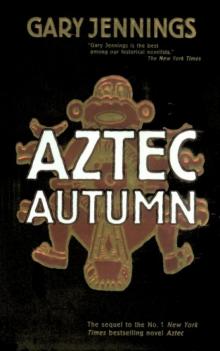 Aztec Autumn
Aztec Autumn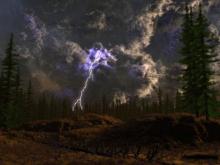 The Savage Horde
The Savage Horde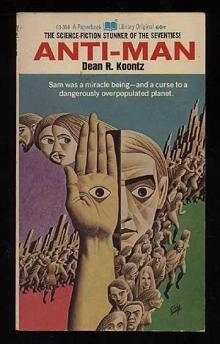 Anti - Man
Anti - Man Deep Trek
Deep Trek Starfall
Starfall The Paths Of The Perambulator
The Paths Of The Perambulator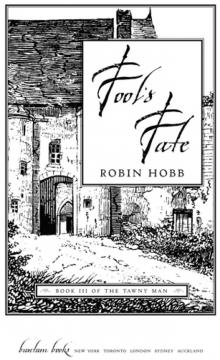 Fool's Fate
Fool's Fate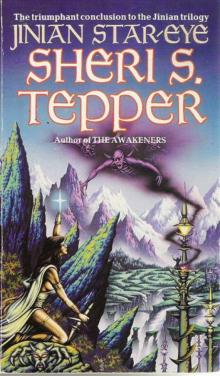 Jinian Stareye
Jinian Stareye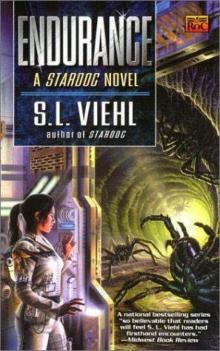 Endurance
Endurance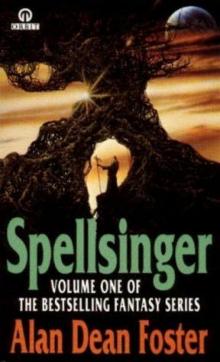 Spellsinger
Spellsinger Hybrids
Hybrids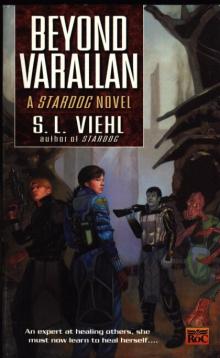 Beyond Varallan
Beyond Varallan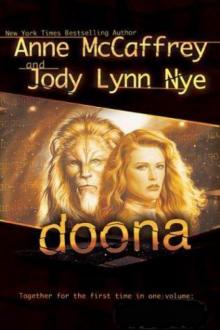 Doona Trilogy Omnibus
Doona Trilogy Omnibus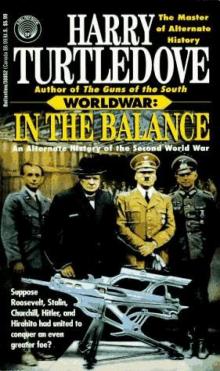 In th Balance
In th Balance Planerbound
Planerbound The Nightmare begins
The Nightmare begins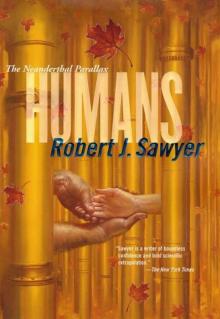 Humans
Humans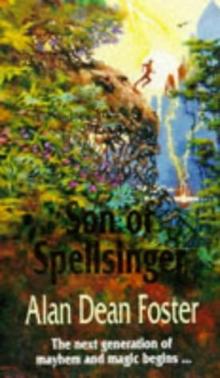 Son Of Spellsinger
Son Of Spellsinger